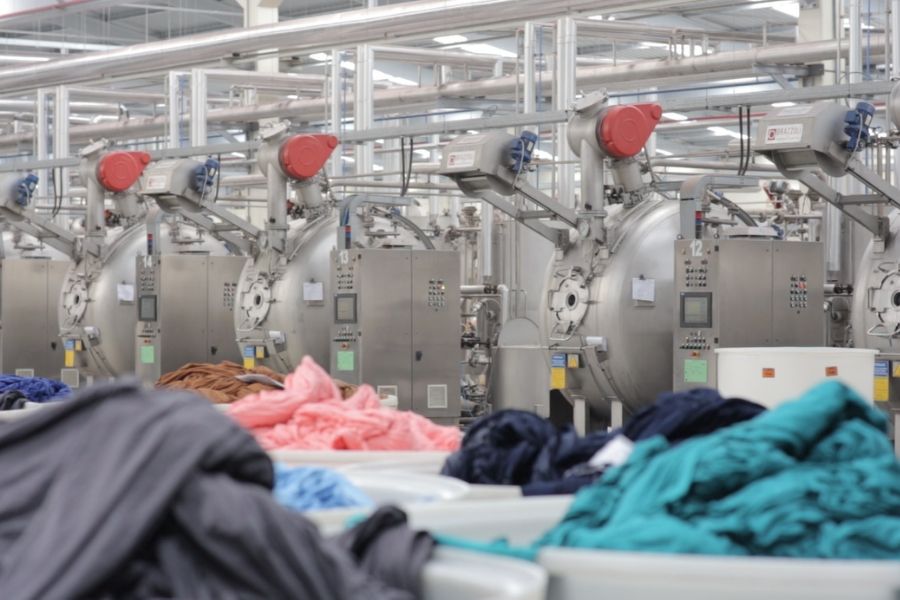The importance of a good maintenance plan for textile machines
The maintenance tasks of different industrial machines is one of the challenges that every company must assume. It is a key factor, as these tasks will guarantee an optimal functioning …

The maintenance tasks of different industrial machines is one of the challenges that every company must assume. It is a key factor, as these tasks will guarantee an optimal functioning of our daily manufacturing activity and will avoid unnecessary hait of the production plants.
Planning maintenance tasks is essential to optimize the workflow, to avoid unexpected events and to ensure that we comply with the different safety regulations and certifications required by law.
Additionally, it means a direct saving in repairs, which a priori, could have been assumable, and it extends the life of the machine to get the maximum return on the investment made.
Keys to maintain textile machinery properly
The maintenance of textile machinery, or any machine in general, has 3 key points:
1. Daily maintenance
A correct inspection by the operator of each shift on the textile machine, and cleaning by the operator of the textile machine each shift, will allow to detect and notify the maintenance department those malfunctions that might be unnoticed.
Therefore, it is important that companies train their employees so that any potential failure might be detected immediately and. In addition, it is recommended to establish a daily maintenance routine.
2. Supervision of the equipment and all its parts
A detailed and comprehensive maintenance plan will allow these tasks to be planned based on the production flow.
The correct performance of these tasks has proved to extend the life of the machine. In addition, we will have a large part of the work done to face all kinds of technical inspections to ensure that our textile plant complies with the regulations and certifications that the customer may require.
3. Change of components
Most machines need spare parts that must be replaced to maintain their correct operation. This is why keeping a stock of spare parts is important.
This stock must be studied and composed based on the needs of each company. Likewise, it must be updated by all the maintenance operators who have access to it.
A correct inventory of parts will make it possible to carry out programmed maintenance tasks, thus ensuring that we have all the right material.
Based on these 3 fundamental principles, we establish different types of maintenance that we must know:
- Predictive:
It’s about carrying out monitoring and diagnostic activities to get a forecast of when we should intervene in the machine.
Nowadays, algorithms are developed to predict when the machine should be checked in order to schedule maintenance work without affecting production flow.
- Preventive:
This maintenance carries out scheduled maintenance activities based on machine manufacturer indications, seeking to intervene in textile machines before they break down, without the advantages of prediction.
- Corrective:
This maintenance is the kind of intervention that we must avoid. These are unscheduled tasks that need a quick intervention and, inevitably, are carried out when the failure is detected.
It can be from a simple adjustment in the machine to a more complex repair. With a proper preventive maintenance, we will avoid in a high percentage this kind of tasks affecting the production planning and reassure we have available the machine we counted on.
- Productive:
This type of maintenance is very simple, but not less important. These are simple tasks of daily cleaning and visual verification.
It is very important to train the machine operator since they will be the ally to detect those malfunctions on the machine and to report them to maintenance managers.
This will be a great advance for the planning of preventive maintenance. After all, the operator becomes familiar with the machine and can give first-hand information.
Maintenance requires the intervention of several actors
It would be a very serious mistake to think that the maintenance of the machines is only the responsibility of this department.
We must take into account that in this process various actors intervene, such as the operators, who inform us from the front line, the warehouse and logistics department, which manages the orders and reception of goods, or the financial department which allocates the economic resources.
In order to carry out all this deployment in the maintenance of textile machines in a production plant, it is fundamental to have coordination and fluid communication between the different departments, establishing action protocols according to each case.
For example, InfoTint/TexDrive has a complete software for the integral management of the textile plant, which incorporates TexMant, a specific module for the effective management of machinery maintenance that interconnects all the departments involved in the work.
As experts in solutions for the automation of processes in the textile industry, thinking on the particular needs of dyers and textile finishing companies, EAS has understood the importance of machinery maintenance in a textile plant and all related tasks. That’s why we put at your disposition our online shop with accessories and spare parts specialized for the textile industry: Shop Escarre.
Moreover, if it comes to predictive and preventive maintenance of the machines, or programmed technical inspections for the factory, EAS offers specific solutions. Contact us for more information.





